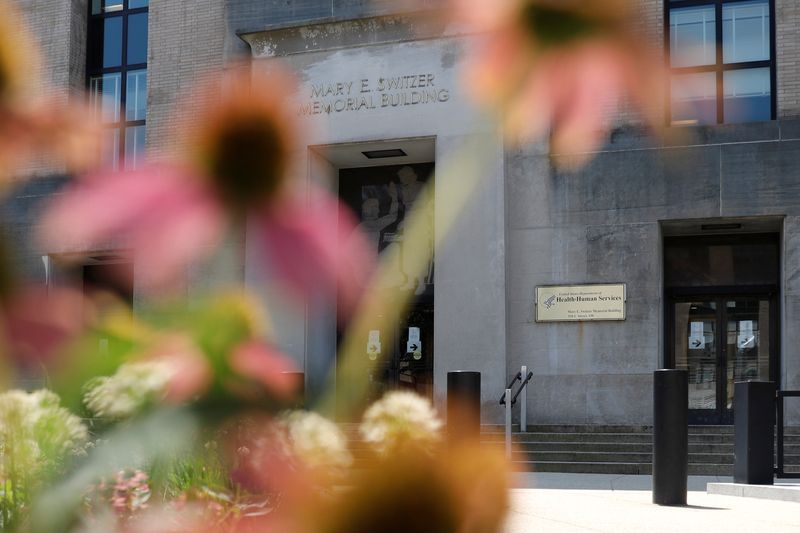NEW YORK (Reuters) – The U.S. Department of Health and Human Services (HHS) on Thursday said 30 states must pause disenrollments from their Medicaid and Children’s Health Insurance Program (CHIP) programs and reinstate coverage for people who lost it due to a glitch uncovered in August.
Medicaid, the federal/state health program for low income people and families, said nearly 500,000 children and other individuals that lost coverage due to a problem affecting automatic renewals will regain their insurance.
“By making sure this systems glitch is fixed in states across the country, we will help stop more families and children from becoming disenrolled simply because of red tape,” Chiquita Brooks-LaSure, administrator for the Centers for Medicare and Medicaid Services (CMS), said at a press briefing.
Congress had required state Medicaid programs to keep people continuously enrolled during the COVID-19 public health emergency, which officially ended in May.
According to HHS, the glitch was causing states to inappropriately disenroll people, even when they had information that they remained eligible for coverage.
The Kaiser Family Foundation, a health policy non-profit, has estimated that between 8 million and 24 million people will lose Medicaid coverage now that continuous enrollment is ending.
White House officials have also expressed dismay over the refusal of Republican-led states like Texas and Tennessee to expand Medicaid, arguing that their actions have contributed to a loss of medical facilities, particularly in rural areas. They have said the failure of states to work to re-enroll people in Medicaid has become part of the politicization of healthcare.
“We could make such a dent in the health outcomes of rural Americans if we would simply expand Medicaid in those states,” White House adviser Tom Perez, a former chair of the Democratic National Committee, told Reuters. “It’s inhumane and unconscionable.”
Perez said Republican governors were “leaving money on the table,” with real consequences for medical care and health outcomes in their states.
(Reporting by Michael Erman in New York and Andrea Shalal in Washington; Editing by Bill Berkrot)
